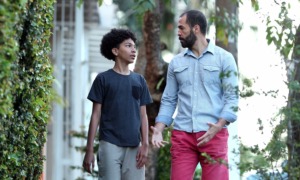 Foster kids moving into adulthood have high aspirations, according to a survey of 727 17-year-olds in the foster care system of California.
Foster kids moving into adulthood have high aspirations, according to a survey of 727 17-year-olds in the foster care system of California.
They’re hopeful about their future and the majority want to continue their stay in the foster care system, according to the survey, part of the California Youth Transitions to Adulthood Study.
In 2012, California extended the age of foster care from 18 to 21, one of the first states to do so. The study seeks to inform California and the rest of the nation about how to best implement this extension.
Four-fifths of the young people surveyed want to graduate from college and almost as many expect to do so, the survey found.
“The good news is that their aspirations look like those of their peers [who are not in foster care],” said Mark Courtney, professor of social service administration at the University of Chicago and principal investigator for the study.
However, one-third of the youth had been held back at least one grade in school, Courtney said. One-third had been placed in special education classes, according to the survey.
“A lot have mental health problems, a history of trauma and the care system hasn’t always met their needs,” Courtney said.
Many had been involved in the juvenile justice system, with two-fifths arrested at least once and one-fifth convicted of a crime, according to the survey.
The survey revealed the gap between the ambitions of foster youth and their situation.
“It’s going to take continuing support for them to realize their aspirations,” Courtney said.
The California Youth Transitions to Adulthood Study is a five-year study begun in 2012. Youth will be interviewed again at ages 19 and 21 to evaluate the impact of extended foster care on them.
California has the largest number of foster care kids of any state, with 54,000 in 2012, according to the California Child Welfare Co-Investment Partnership. What the state learns from this study could be very useful to the rest of the nation, Courtney said.
Some additional findings from the baseline survey:
- The youth and their needs are diverse.
- Foster care youth recognize the important support they receive.
- Gaps exist in housing, employment, financial literacy and knowledge of services.
The transition to adulthood is challenging for most youth, but particularly for foster youth.
“They are our children,” Courtney said. “We took them away from their families.”
“We need to have services in place to help them.”
The study was conducted by Chapin Hall, an independent policy research center at the University of Chicago, in collaboration with the California Department of Social Services and the County Welfare Directors Association of California.
Funding was provided by the Conrad N. Hilton Foundation, Stuart Foundation, Walter S. Johnson Foundation, Zellerbach Family Foundation and the Annie E. Casey Foundation.


























